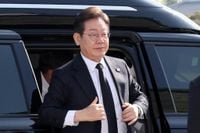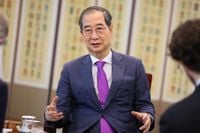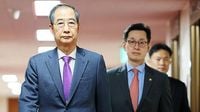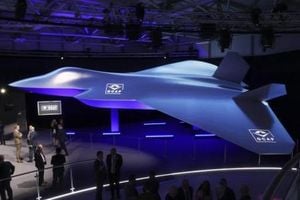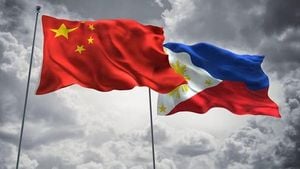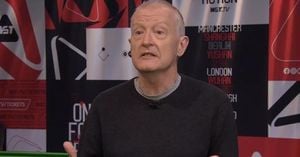As South Korea gears up for its presidential election, acting Prime Minister Han Duck-soo is poised to announce his candidacy this week, marking a significant moment in the country's political landscape. Initially expected to step down on April 30, 2025, Han's timeline has shifted slightly due to a scheduled meeting with U.S. Secretary of the Navy John M. L. Pullen, which complicates his resignation plans.
Han, who has been serving as acting president, is now likely to resign on May 1, 2025, and declare his candidacy the following day, May 2, 2025. According to a source close to Han, his campaign will focus on three key pillars: "Economy, Unity, and Security." This approach aims to unite various factions within the country and alleviate political tensions, ensuring that citizens do not have to worry about political strife anymore.
The decision to run comes amid a backdrop of rising tensions within South Korean politics, particularly with the Democratic Party's Lee Jae-myung, who recently garnered significant support in a nationwide poll. Conducted by Korea Research for KBS from April 22 to 24, the poll revealed that Lee received 42% of the support as the most suitable candidate for the presidency, far surpassing Han Duck-soo, who only received 11%.
In the same poll, other candidates from the People Power Party, including Han Dong-hoon and Hong Joon-pyo, trailed behind Lee, receiving 9% and 8% respectively. The combined support for conservative candidates, however, reached 41%, indicating a competitive race ahead. The poll also revealed that 70% of respondents believe Han should focus on his role as acting president rather than run for office.
Despite the mixed sentiments regarding his candidacy, Han's intention to run appears firm. Insiders have indicated that he is concerned about the current government's ability to navigate the ongoing crisis, particularly in light of policies promoted by the Democratic Party. Han's strategy includes pursuing constitutional amendments aimed at stabilizing the political environment and potentially shortening his presidential term to allow for a smoother transition.
Furthermore, Han's campaign is set against the backdrop of significant geopolitical considerations. His meeting with Secretary Pullen is expected to address critical issues surrounding U.S.-South Korea trade negotiations, especially regarding tariffs that have been a source of contention. Han has previously described the U.S.'s 25% tariff on steel as "shock therapy" and emphasized the importance of U.S. military presence in South Korea.
On the Democratic side, Lee Jae-myung has solidified his position as the party's candidate, recently confirming his status at a joint meeting on April 27, 2025, in Goyang, Gyeonggi Province. Lee's overwhelming support in the poll positions him as a formidable opponent for Han, especially as both candidates prepare for a race that could reshape South Korea's political landscape.
As Han Duck-soo prepares to embark on his presidential campaign, he is also set to meet with influential political figures, including Chung Dae-chul, the chairman of the Constitutional Research Association. This meeting is anticipated to focus on the necessity of constitutional amendments, particularly regarding the presidential term and the balance of power between the presidency and the National Assembly.
Chung, who has a long-standing relationship with Han, expressed confidence that Han's visit to the Constitutional Research Association is a sign of his commitment to addressing these critical issues. The association has been vocal in urging presidential candidates to pledge support for a constitutional referendum during the local elections scheduled for June 2026.
In the broader context, the upcoming presidential election is not just about individual candidates but also reflects the public's desire for stability and effective governance. With economic challenges looming, including the impact of tariffs and the need for a robust economic strategy, both Han and Lee will need to articulate clear plans to address these concerns.
As the political landscape evolves, the race between Han Duck-soo and Lee Jae-myung will serve as a crucial litmus test for South Korea's future direction. With potential shifts in policy and governance styles at stake, voters are poised to make decisions that could significantly impact the nation.
In conclusion, as the election approaches, the dynamics between the candidates, their proposed policies, and the public's expectations will play a pivotal role in shaping the outcome of this crucial election cycle.
